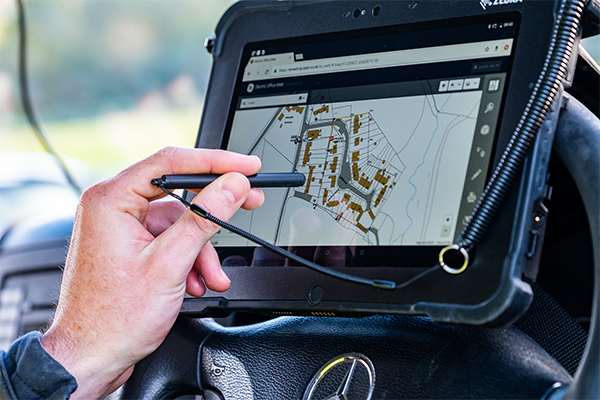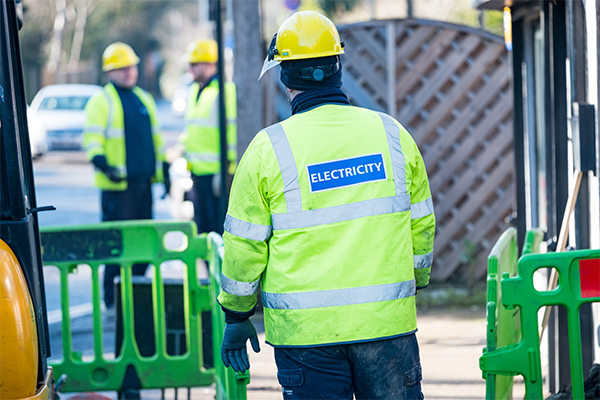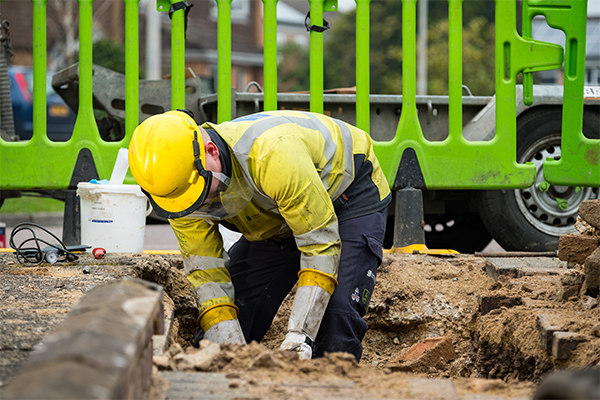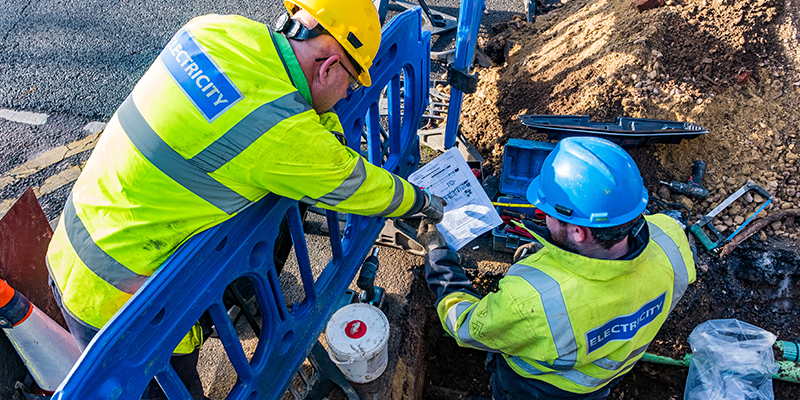Plan
- Plan your work carefully. Work out how you are going to locate utility equipment and avoid the risk of damaging it.
- Complete a risk assessment before starting work. Identify the dangers and hazards associated with excavations.
- Request location details and plans from SSEN well in advance of work starting. Remember that other works may have changed the exact position of utilities or ground levels and that the plans are a guide only. You’re responsible for confirming the exact location of all equipment and avoiding damage.
- Refer to the LinesearchbeforeUdig website for instant access to plans of electricity equipment, as well as underground equipment for other utility companies

Scan
- Once you have copies of utility plans, you should scan for the utilities around where you are working so you are aware of their location before digging or excavating.
- Use Cable Avoidance Tools (CAT and Genny) to identify the presence of buried cables before you start to dig. If you need help from SSEN, we can arrange to check the work area with you. Once work is underway you should Rescan the area as your work progresses.
- Check around the area for signs of buried apparatus such as meter and fuse boxes, electricity pillar boxes, consumer units, utility indicator markers, and manhole covers.
- Consider hand-digging trial holes to expose the services before using any electric or mechanical excavation tool. Always adopt safe digging techniques to establish the line and depth of underground utility equipment.

When you start work
- Always hand-dig near to services using spades and shovels rather than picks, pins and forks.
- Electricity cables embedded in concrete must either be made safe before the concrete is broken out or another safe way of working agreed with the cable owner. If you identify this situation, please contact us so that we can help you work safely and minimise the risk of injury.
- Always assume underground cables are live. If they appear to be damaged do not approach them and contact your local electricity network operator using 105.
- In an emergency dial 999 and tell them electricity is involved. Call 105 to make our teams aware and stop work immediately.

Download the Health & Safety Executive leaflet for further guidance
Helpful resources
Take a look at our helpful resources and useful advice to help you stay safe when working near our equipment as well as links to industry recognised safety videos.
Find out more
